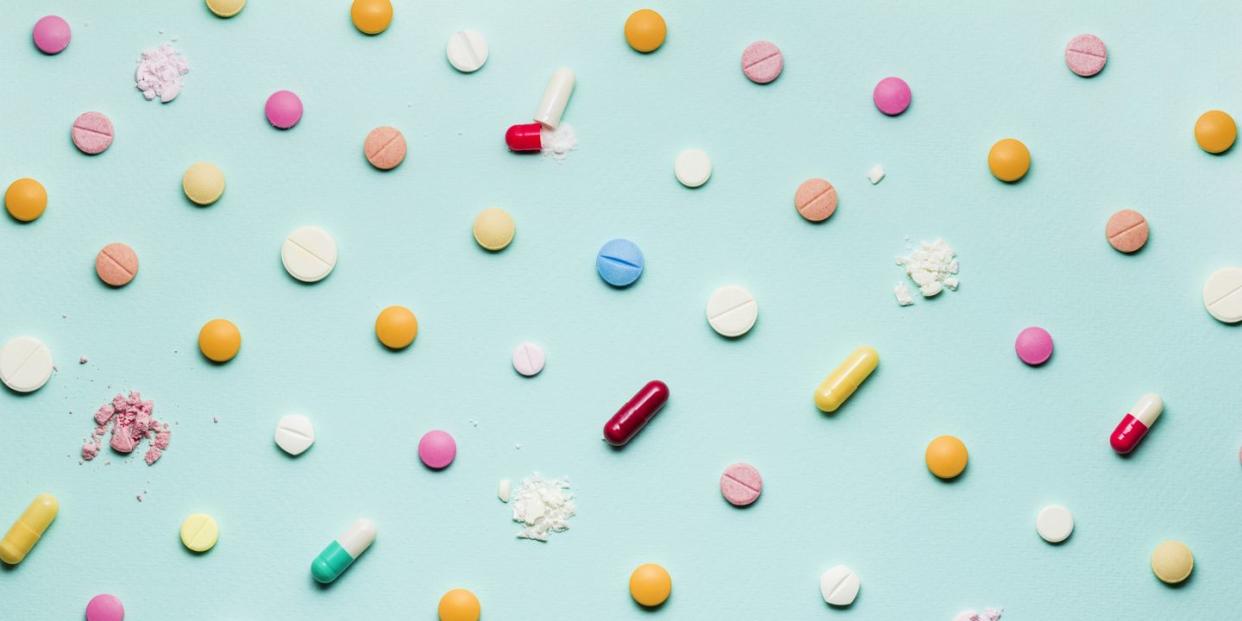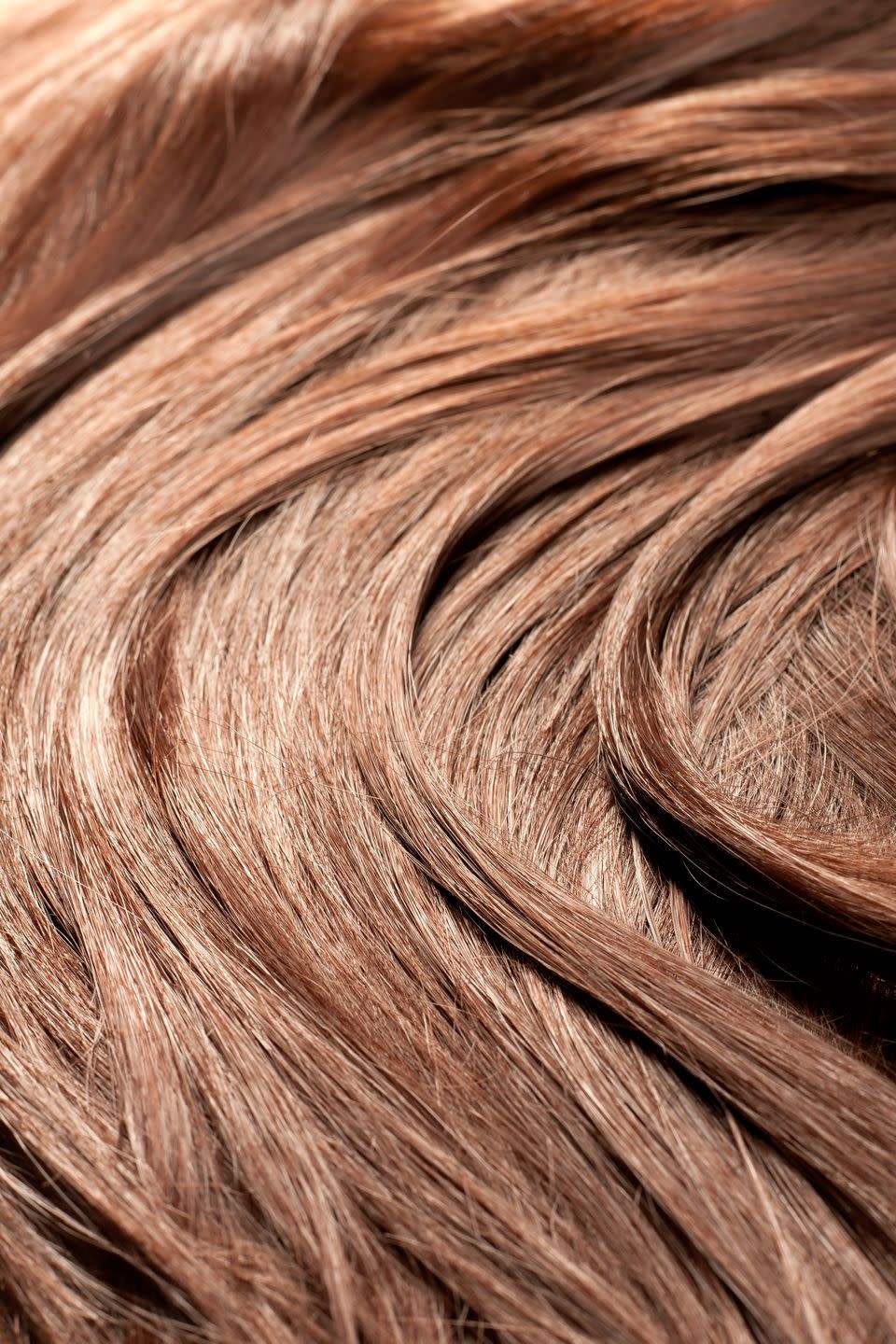The Truth About Biotin Supplements

Maybe it’s stress making your hair a little wispy, or hard-to-remove gel manicures shredding your nails. Or perhaps it’s that pizzatarian diet — too many late nights at work means you’re not eating your best. Whatever the reason, your nails are weak and peely, and your hair is looking like the before picture in a conditioner ad.
And there, calling out to you from the packed shelves of the drug store, is a supplement containing biotin, a B vitamin that, according to the bottle, “Supports Healthy Hair, Skin & Nails!” Perfect, you think. Until you read the label’s disclaimer: the FDA hasn’t evaluated that statement and that these pills don’t purport to treat any particular illness.
So should you plunk down your dollars in hopes that biotin will get you the glossy, voluminous hair and long, strong nails you’re hoping for? The answer is a resounding… maybe.
What is biotin, anyway?
Biotin, also known as Vitamin B7, is a water-soluble nutrient found in foods. You can get your biggest hit of biotin in beef liver (not exactly a family favorite). But it can also be found in lesser amounts in egg yolks, sunflower seeds, nuts, and veggies like avocado, says Jason Ewoldt, RDN, LD, wellness dietician at the Mayo Clinic’s Healthy Living Program.
“Biotin is critical for the metabolism of fatty acids and carbs, but that’s not what people are using it for. They’re using it to strengthen brittle nails and for thinning hair,” he says.
So why are people taking biotin for hair and nail growth?
The thinking goes a little something like this: Because people who are deficient in biotin have certain symptoms — including facial rashes, pink eye, and yes, thinning hair and brittle nails — upping your biotin intake may help.
But this logic isn’t super solid. There are tons of reasons you may have thinning hair, most of which have zero to do with a biotin deficiency. And true biotin deficiency is rare, says Ewoldt — pregnant or breastfeeding women are prone, as are people who abuse alcohol (vegans may also run low). Still, says Ewoldt, supplementing with biotin is a relatively easy, inexpensive thing to do, so people think, hey, why not?

And there is anecdotal evidence that it can help. “Many people have trouble getting enough biotin via diet and should supplement, especially those with thinning hair or brittle nails,” says Arielle Levitan, M.D., an internal medicine physician in Highland Park, IL, and co-founder of Vous Vitamins, a company that creates personalized multivitamins. “There is no reliable blood test [for biotin deficiency] so sometimes it is helpful to supplement.” Dr. Levitan also explains that how much biotin you need depends on the individual.
What does the science say?
Not a whole lot. “For hair health, there is really no evidence at all that it strengthens hair and promotes it to grow,” says Ewoldt.
For healthy nails, there’s a bit more evidence, he says. “In those studies, they supplement with a small amount of biotin per day, and there was a small improvement in nail thickness.” But these weren’t large studies, and as in all nutrition research (where people aren’t only eating giant bricks of biotin), “it’s hard to pin the effects down to this one nutrient,” says Ewoldt.
How much biotin should you take?
There is no recommended daily allowance, but an adequate amount of biotin is thought to be 30 mcg a day. The National Institutes of Health has not established how much is too much, but it doesn’t seem to be toxic even in oral doses as high as 200 mcg.
Are there any side effects to taking biotin?
“Taking too much biotin can have negative effects,” says Dr. Levitan. It can skew the results of certain blood tests, for one, leading to misdiagnoses. “It can also interfere with the absorption of other B vitamins which are essential to other important aspects of health,” she adds. That’s why she recommends those with thinning hair don’t supplement with more than 2500 mcgs a day.
So, should you try it?
The greatest risk to taking biotin supplements seems to be that you’ll pee out what your body can’t use and your hair and nails will look the same. But if you want give it a go, make sure you get a brand that, well, at least contains biotin. Various studies have found that vitamins and herbal supplements don’t contain the amounts of key ingredients that they claim to (gummies were found to be especially lacking). “This is a largely unregulated industry,” says Dr. Levitan.
So look for brands that use third-party testing — the label usually says NSFor USP on it, indicating that independent labs have verified that the product contains what it says it does. “That way, even if it does nothing, at least you’re buying what you’re expecting,” says Ewoldt. Meanwhile, the retail chain CVS announced in May that they’re only selling supplements that have been third-party tested.
Even better, talk to your doctor about why your hair and nails may be weak; it could be an underlying medical condition, and other nutrients, such as iron, Vitamin D3 and vitamin C, which helps you absorb iron, can affect your hair and nails, says Dr. Levitan. “I would look at someone’s diet as a whole,” says Ewoldt. If they’re not getting enough of any essential nutrient, “that’s where supplementing can be a benefit,” he says.
You Might Also Like

